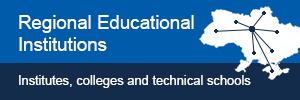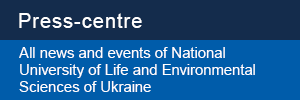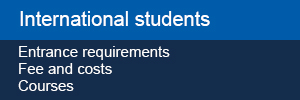International work
Scientific and international activities are strategic directions for the Faculty of Information Technologies' development. They aim to generate new knowledge, introduce innovative IT solutions in education, economics, and environmental management, and integrate into the European and world scientific space.
International cooperation includes implementing joint projects with EU universities, the Erasmus+ program, double diplomas, internships abroad, conferences, and teacher exchanges. The faculty co-organizes international scientific conferences, round tables, and hackathons, and publishes research results in leading indexed journals.
International activities
International cooperation
The international activity of the Faculty of Information Technologies is one of the priority areas of development. It is aimed at:
- expansion of academic mobility of students, graduate students, and teachers;
- implementation of international scientific projects;
- organization of educational programs in English;
- participation in double degree programs;
- cooperation with the world's leading universities.
Key international partners
- Pomeranian University (Słupsk, Poland) is a double degree program for "Computer Science" students.
- Wroclaw University of Life Sciences (Poland) — joint conferences, seminars, international summer schools.
- Weienstephan-Triesdorf University of Applied Sciences (Germany) — summer schools, academic exchange.
- University of Bern (Switzerland), University of Udine (Italy), JUNIA ISEN (France), Košice Technical University (Slovakia) — semester training and internship programs.
- National Taiwan University of Science and Technology, University of San Jose (USA), Universiti Teknikal Malaysia Melaka — project and research cooperation.
International educational programs
- Double degree program: already implemented for more than 15 students. A memorandum of cooperation was signed with the University of Pomerania.
- Academic mobility: more than 25 students and teachers annually participate in Erasmus+, DAAD, Mitacs, and TechHope programs.
- English-language master's programs: preparation of the "Smart Systems based on AI and Robotics" program.
International scientific projects
- HORIZON EUROPE – ECOTWINS: Agroecological Intensification Project (2022–2025)
- Erasmus+ / Jean Monnet Module – OH4EU (One Approach to Healthcare)
- DAAD – digitalization of the educational process in agricultural universities
- Baltic Sea Neighbouring – Dairy Information Systems
- Applications for UNIDO, Visegrad Fund, Google.org (Cybersecurity), and other funds have been prepared.
Training of international students
- OS "Bachelor": students from Uzbekistan, Ecuador, Turkmenistan, Algeria.
- OS "PhD": 5 postgraduate students from China in the specialty 122 "Computer Science".
- English-language learning support, adaptation, and accompaniment throughout the education cycle.
Annual International Events
- International Conference "Digital Education in Science Universities" (Wroclaw, Poland)
- "Global and Regional Problems of Informatization"
- "Information Technologies: Economics, Technology, Education" — Conference of Young Scientists
- International Summer School "TechHope" (USA – Ukraine) – intensive in IT project management, secure coding, and leadership
Plans for 2025
- Expansion of cooperation with universities in the EU, USA, and Asia
- Applying for new programs Horizon Europe, Danube Accelerator, Visegrad Fund
- Creation of an international consortium on digital education and cybersecurity
- Attracting foreign experts to teach modules in English
Dual Degree Programs
The double degree program is a unique opportunity for students of the Faculty of Information Technologies to receive two higher education diplomas — Ukrainian and one from a university in the European Union. This allows you to significantly increase the competitiveness of graduates in the international labor market and open the way to study further or employment abroad. Pomeranian University in Słupsk (Poland)
Direction: Informatics (specialty "Programming")Educational levels: Bachelor's / Master's
- Also in the development of an agreement with:
- Slovak University of Technology in Bratislava (STU)
- Wrocław University of Life Sciences
- University of Bern (Switzerland)
Terms of participation in the program
- Availability of the status of a 2nd or 3rd year student of the Bachelor's degree program of the Faculty of IT
- Training in specialties:
- 121 "Software Engineering"
- 122 "Computer Science"
- 123 "Computer Engineering"
- Average score of at least 74 points
- Knowledge of a foreign language (Polish/English) at a level not lower than B2
- Motivation letter + recommendation from the group curator
- Participation in the selection, which is carried out by a joint commission with representatives of both universities
Organization of the educational process
- The first 2 years of study — at the NUBiP of Ukraine (Kyiv)
- 3rd or 4th year — at a partner university (Poland or another EU country)
- Both parties recognize all learning outcomes
- Teaching is conducted in Ukrainian and Polish/English
- Upon successful completion of the program, the student receives two diplomas: Bachelor's Diploma of NUBiP of Ukraine, Dyplom uczelni partnerskiej (Poland/EU)
Examples of successful participation
- In recent years, more than 15 students of the faculty have completed their studies at the Pomeranian Academy (Poland)
- Graduates continue their careers in EU IT companies or enter master's programs at foreign universities
Applying
- Every year, recruitment takes place in September
- To register participation, you must contact the coordinator of the international program:
Additionally, the faculty is developing a hybrid participation mechanism — online modules from partner universities- allowing you to continue the program even under martial law or border crossing restrictions.
Academic mobility programs
Academic mobility programs
The Faculty of Information Technologies is actively developing academic mobility as a key mechanism for the internationalization of education. Graduate students and teachers can undergo training, internship, or teaching practice at leading foreign universities and research centers and join international projects, conferences, and summer schools.
Erasmus+ programme
- Participation in competitive selection for 1 or 2 semesters in partner institutions in Europe
- Directions: Computer Science, Software Engineering, Cybersecurity, Economics
- Partners:
- Berlin University of Applied Sciences (Germany)
- Wroclaw University of Life Sciences (Poland)
- Weienstephan-Triesdorf University of Applied Sciences (Germany)
- JUNIA ISEN Graduate School of Engineering (France)
- Conditions: English language proficiency (B1–B2), average score of at least 75, motivation letter
Summer and winter schools
- TechHope Summer School (USA – Ukraine)Topics: IT Project Management, Secure Coding, Digital Leadership
- Wroclaw School of Digital Education (Poland)Digital Skills Modules, Management of Educational Platforms
- International Summer School on Agroecological IT Solutions (Germany)
Participation in schools allows students to deepen their knowledge of current IT areas, improve their language skills, and join joint inter-university projects.
Internships and Research Internships
- Mitacs Globalink Internship (Canada) is a 3-month research internship in laboratories in Canada
- DAAD (Germany) — internships for teachers and graduate students in agricultural and technical universities
- Baltic Research Grants — participation in scientific and educational projects with a focus on environmental information technologies
- Google.org + ECCRI CIC — Cybersecurity Seminars for Ukrainian Academics
Examples of successful participation
- Mykola Marushchak, Lev Fetman — University of Bern (Switzerland)
- Maria Sayapina, Roman Vasiltsov — Weienstephan-Triesdorf (Germany)
- Yegor Bavin — Polish-Japanese IT Academy (Poland)
- Ivan Ivchenko — JUNIA ISEN (France)
- Anna Havryliak — Košice Technical University (Slovakia)
How to apply
- The student fills out the participant's questionnaire (forms a motivation letter, CV, and confirmation of the level of language)
- The application is considered by the International Commission of the faculty
- Details are announced on the faculty's website and distributed via email newsletters





